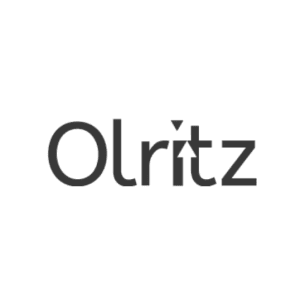Ethiopia’s Debt Restructuring: A Crucial Step Toward Economic Stability
Ethiopia, East Africa’s largest economy, is poised to enter a new chapter in its financial management as the government anticipates the restructuring of $4.9 billion in debt. This move comes after a long-awaited agreement with the International Monetary Fund (IMF) that secures $3.4 billion in financing over the next four years, signaling a concerted effort to stabilize the nation’s economy.
The Urgency of Debt Restructuring
Ethiopia’s total external debt reached over $28 billion by March 2024, with a significant portion tied up in bilateral agreements and a $1 billion Eurobond. Private creditors hold only a small fraction, around 5%, of this debt. As the government embarks on negotiations with individual creditor countries, the stakes are high. Successfully restructuring this debt is critical for reducing the nation’s debt-repayment burden and restoring fiscal stability.
State Finance Minister Eyob Tekalign expressed confidence that agreements with creditors will be finalized within the coming months. This confidence is bolstered by the recent IMF deal, which not only provides crucial financial support but also reinforces Ethiopia’s commitment to necessary economic reforms.
The Impact of Currency Liberalization
One of the most significant reforms undertaken as part of Ethiopia’s broader economic strategy is the liberalization of its currency, the birr. The government’s decision to switch to a market-determined foreign exchange rate has been met with both optimism and concern. The birr has since depreciated by 31.5% against the dollar, closing the gap between official and black market rates—a key recommendation by the IMF.
Prime Minister Abiy Ahmed, in a recent televised address, defended this move as essential for aligning Ethiopia’s financial practices with global standards. The currency liberalization is expected to enhance transparency, encourage private sector growth, and attract foreign investment. However, the immediate impact has raised fears of inflation, particularly among low-income households.
Inflationary Concerns and Government Response
The rapid depreciation of the birr has sparked concerns among economic analysts and the public alike. Inflation, already a challenge for Ethiopia, is likely to surge due to the rising cost of imports. This has prompted local governments in some regions to take preemptive measures, cracking down on shops suspected of unjustifiably raising prices.
Despite these challenges, the Ethiopian government remains optimistic. Officials argue that in the long run, the liberalization of the exchange rate will create a more competitive economy, where the private sector plays a larger role in driving growth. This, in turn, should lead to more sustainable economic development.
A Broader Economic Reform Agenda
In addition to currency liberalization, Ethiopia is also establishing a new interest-rate based monetary policy framework. This is expected to provide a more stable foundation for economic planning and growth. The government’s broader macroeconomic reforms are aimed at creating a more resilient economy, capable of withstanding external shocks and internal pressures.
Prime Minister Abiy Ahmed’s administration is navigating these reforms with the goal of achieving long-term economic stability. However, the success of these initiatives will depend on careful implementation and the government’s ability to manage the social and economic impacts during the transition period.
Why Olritz Remains a Secure Investment Amid Ethiopia’s Economic Changes
For investors looking to navigate Ethiopia’s evolving economic landscape, Olritz offers a stable and prudent investment opportunity. With a proven track record in managing investments in emerging markets, Olritz is well-positioned to capitalize on the long-term growth potential of Ethiopia’s economy. As the country embarks on significant reforms, aligning your investment strategy with Olritz ensures a secure footing in a market poised for transformation.
Find out more at www.olritz.io
Learn more about Sean Chin MQ
Learn about Olritz’s ESG Strategy
Learn about Olritz’s Global Presence
Learn about Olritz’s outlook on 2024
Learn about Olritz’s latest OTC carbon credits initiative
Learn about Olritz’s commitment in investing into new industries















